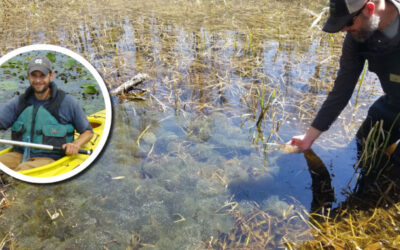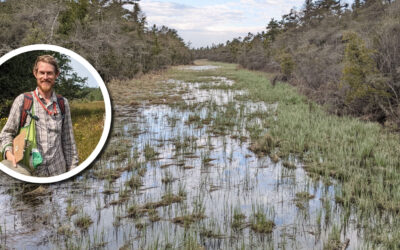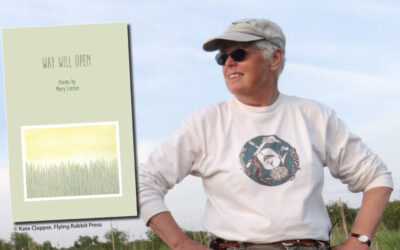Wetland Coffee Break
The Wetland Coffee Break series helps keep our community of wetland lovers connected and learning about wetlands throughout the year, from anywhere! Bring your coffee and learn about wetlands, the plants and animals that call them home, and the many natural benefits they provide to our communities. Sessions are held on Zoom and feature time for audience Q&A.
See below for a list of upcoming presentations and to register. Once you register, you’ll receive an automatic email including the URL link and password you’ll need to access the meeting. We record and post each presentation so you can watch any that you missed live. You’ll find links to these recordings below, and you can also find them on our Facebook page.
We are grateful to all of the presenters for sharing their knowledge and expertise and to everyone interested in learning more about wetlands! If you are interested in giving a Wetland Coffee Break presentation, or if you have a wetland topic you’d like to see covered, please contact Katie.Beilfuss@wisconsinwetlands.org.
We are now able to provide attendance verification to Wetland Coffee Break audience members who attend the live sessions and request this service. We created this mechanism in response to requests from members of the Wetland Coffee Break audience who would like to apply their Wetland Coffee Break learning to their continuing education or certification requirements. Learn more about how to receive attendance verification here.

Register for a Wetland Coffee Break
The Wetland Coffee Break is on winter break, back in 2026. Check back in later this winter for upcoming programs, and subscribe to our every-other-week Wetland News email to get our calendar of events, which includes Wetland Coffee Break episoded. Meanwhile, consider attending the 2026 Wetland Science Conference, happening Feb. 24-26 in Baraboo/Wisconsin Dells, for more great information about wetlands.
Watch previous presentations
Click “Older Entries” below to see more past presentations, or view our Google Sheet index of past presentations here.
Wetland Coffee Break: Establishing a citizen science salamander and ephemeral pond monitoring program in Wisconsin
What are ephemeral ponds, and why are they important to amphibians and other critters?
Wetland Coffee Break: Bryophyte floristic quality assessments of Wisconsin peatlands
Join Keir Wefferling to learn what these non-vascular plants, like mosses, liverworts, and hornworts, can tell us about the health of Wisconsin peatlands.
Wetland Coffee Break: Getting the most out of chemical control of wetland invasive plants with herbicide-additive systems
This presentation will demonstrate ways to get the most out of chemical control by taking advantage of herbicide-additive systems and detail the essentials of target plant anatomy and physiology as they relate to invasive species suppression.
Wetland Coffee Break: Celebrating wetlands through poetry: The art and craft of Mary Linton
Join us for this special Wetland Coffee Break to honor Mary’s memory and celebrate her craft as a poet.
Wetland Coffee Break: All-female salamanders “rule” an ephemeral pond
Gregory T. Burns discusses his multi-year citizen science amphibian-focused research of vernal pools (ephemeral ponds) in east central Wisconsin, including the first definitive discovery of the all-female salamander biotype in southern Wisconsin.
Wetland Coffee Break: Starhead Topminnow: The rare star of the backwaters of the Lower Wisconsin Riverway
Young ichthyologist Madeline Cleveland shares her knowledge of this state endangered species’ natural history, the threats it faces, and conservation efforts being made to preserve it.






